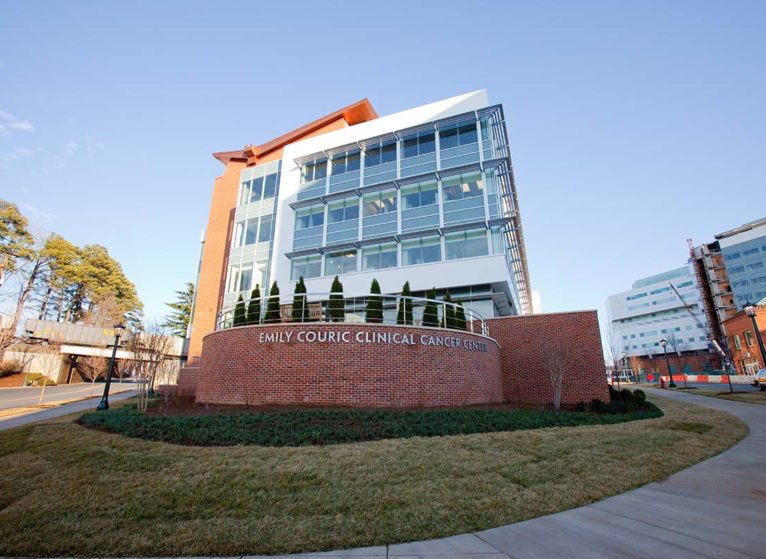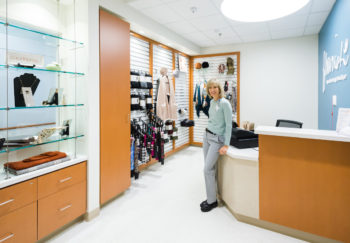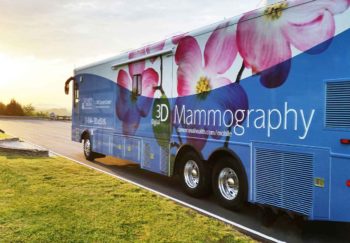Today UVA Cancer Center officially becomes a National Cancer Institute (NCI)-designated comprehensive cancer center.
That’s more than a fancy new title. The NCI is the largest funder of cancer research in the world. It sets the standard for what it means to be a leader in cancer prevention, diagnosis, research, and treatment. Comprehensive status is the highest designation NCI offers. That means cancer centers have to show they’re one of the best in the U.S. to achieve it.
UVA is the first and only cancer center in Virginia to become a comprehensive cancer center. We're one of only 52 centers in the U.S. with this designation.
“As the only comprehensive cancer center in Virginia, this recognition signifies our ability to deliver cancer prevention, new discoveries, and innovative treatments to our patients, leading to improved quality of life, care, and survival,” said Thomas P. Loughran Jr., MD, director of UVA Cancer Center. “For all of our patients, this means they benefit from the most exceptional, leading-edge cancer care available.”
Do You or a Loved One Have Cancer?
Access the latest treatments or get a second opinion.
More Life-Saving Treatments
Each year, our funding for cancer research totals more than $30 million. We use that money to better understand how cancer starts and spreads. Then we use that information to come up with new and better treatments.
For example, our research into leukemia and lymphoma helped us pioneer new treatments. Before that, the treatments that existed didn’t work for some patients and they were out of options. Now many of those patients are in remission and well again.
Better Access to Clinical Trials
Clinical trials don’t just lead to treatment breakthroughs. They also give patients access to the latest treatments. At UVA, more patients can get these treatments. That’s because we’ve grown the number of patients in clinical trials by 500% in recent years.
UVA participated in the first National Institutes of Health-sponsored study for CAR T-cell therapy to treat pediatric leukemia. That clinical trial gave children early access to this advanced therapy. Now we’re testing CAR T-Cell therapy to treat other types of lymphomas in adults and leukemia in children.
Expanded Prevention Where Cancer is Common
Part of becoming a comprehensive cancer center meant building a population research program at UVA Cancer Center. This program helps us look at the large area we serve to see where people get cancer. We look at risk factors affecting whole communities.
We found that southwest Virginia and West Virginia have higher rates of obesity and smoking. These are big risk factors for cancer. So, we’re working to bring these rates down. We also found high rates of colon cancer. Now we give more screenings, to catch it faster.
We also learned that more people get cervical cancer in Appalachia. To learn why, we've teamed up with three other hospitals to apply for a $14 million research grant.


